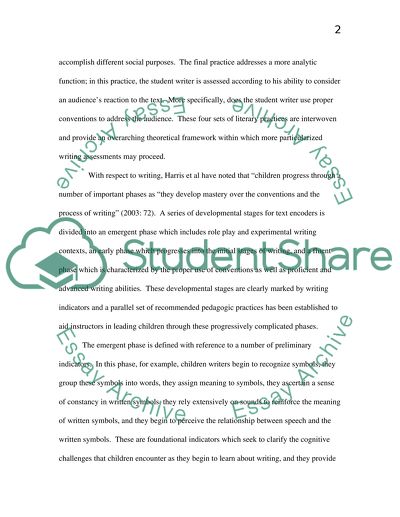Cite this document
(“A primary school writing assessment:theory and application Essay”, n.d.)
Retrieved from https://studentshare.org/education/1534578-a-primary-school-writing-assessmenttheory-and-application
Retrieved from https://studentshare.org/education/1534578-a-primary-school-writing-assessmenttheory-and-application
(A Primary School Writing assessment:Theory and Application Essay)
https://studentshare.org/education/1534578-a-primary-school-writing-assessmenttheory-and-application.
https://studentshare.org/education/1534578-a-primary-school-writing-assessmenttheory-and-application.
“A Primary School Writing assessment:Theory and Application Essay”, n.d. https://studentshare.org/education/1534578-a-primary-school-writing-assessmenttheory-and-application.


